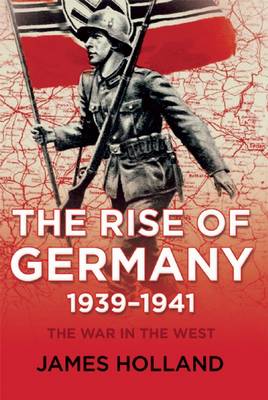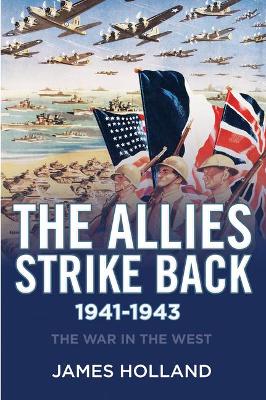War in the West
2 total works
The Second World War is one of the most significant conflicts in history, but for seven decades our understanding of the war has remained mostly fixed, framed by the accounts of participants and an early generation of historians. James Holland, one of the leading young historians of World War II, has spent over a decade conducting new research, interviewing survivors, and exploring archives that have never before been so accessible to unearth forgotten memoirs, letters, and official records. In The Rise of Germany, Holland draws on this research to reconsider the strategy, tactics, and economic, political, and social aspects of the war. The Rise of Germany is a masterful book that redefines our understanding of the opening years of World War II. Beginning with the lead-up to the outbreak of war in 1939 and ending in the middle of 1941 on the eve of Operation Barbarossa, the Nazi invasion of Russia, The Rise of Germany is a landmark history of the war on land, in the air, and at sea.
Following The Rise of Germany, the acclaimed first volume in his War in the West trilogy, James Holland has crafted a masterful and gripping narrative of the events that ultimately determined the outcome of World War II. By June 1941, Germany's war machine looked unstoppable. The Nazi blitzkrieg had taken Poland, France, and the Netherlands with shocking speed. The Luftwaffe had bombed London, while German U-boats wrought havoc on Allied shipping on the Atlantic. And yet, as Holland shows in The Allies Strike Back, cracks were already appearing in Germany's apparent invincibility. When the Americans entered the war in the west, Hitler was bogged down with a savage war of attrition as he attempted to invade the Soviet Union. The Allies soon stormed to victory in North Africa and escalated the bombing of Germany, fatefully turning the tides of the war and threatening the morale of the Third Reich.
With a wealth of characters from across the western theater of World War II, Holland tells a captivating story while calling on new research that challenges our assumptions and reframes our understanding of this momentous conflict.

